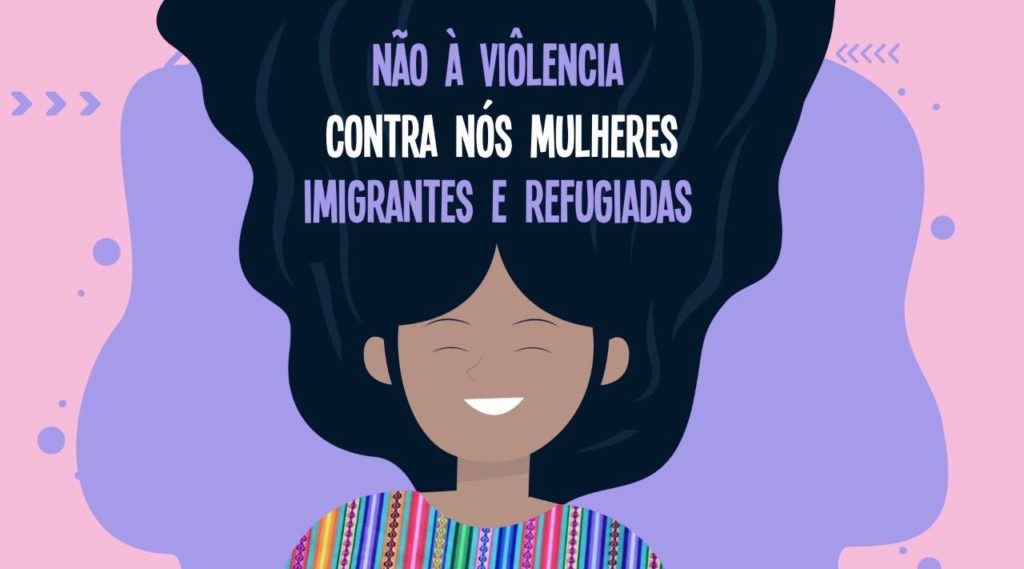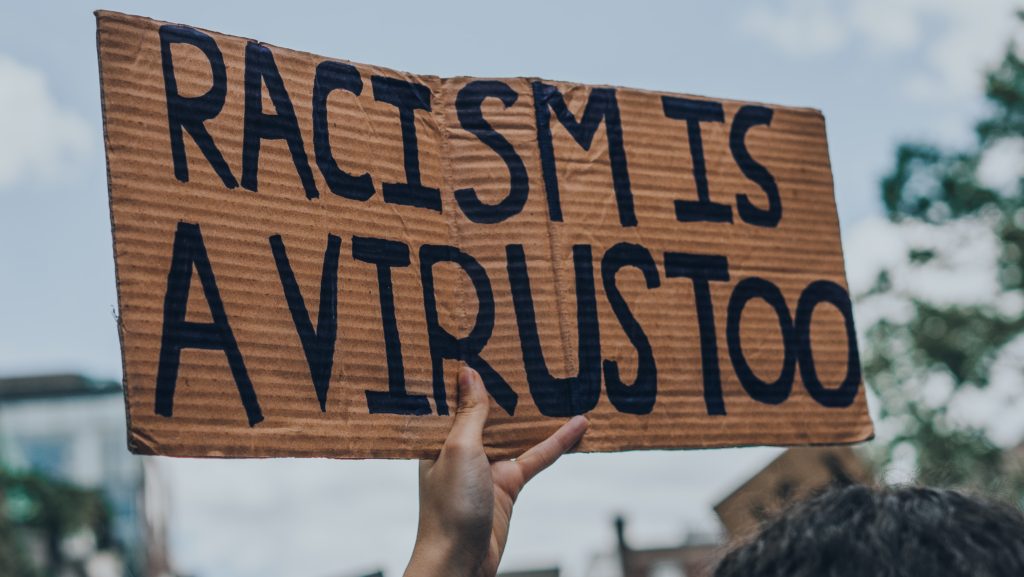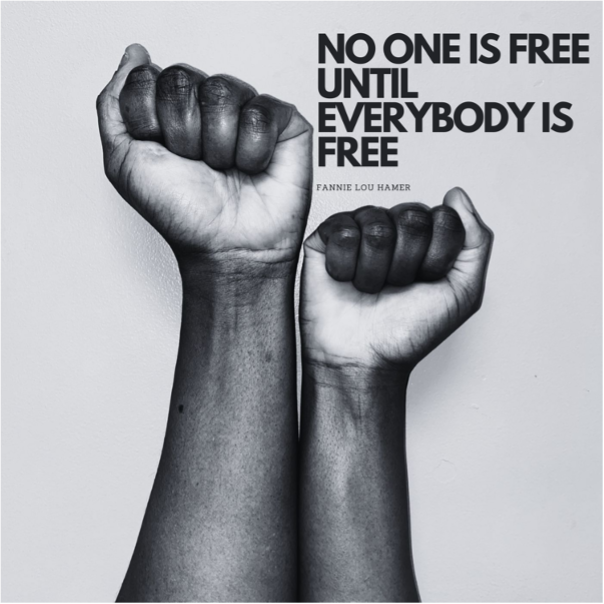As the world marks 30 years since the Beijing Platform for Action, the Women in Migration Network launches a timely report examining the state of women in migration and calling for migration to be placed at the heart of the global gender equality agenda.
Written by Roula Seghaier - Researcher at Women in Migration Network
Photo by Simon Chambers/ACT
As we approach the 30th anniversary of the Beijing Platform for Action (BPfA), a landmark document for gender equality, a stark reality persists: women in migration are still fighting for inclusion in the gender equity and equality agenda. While the BPfA acknowledged the vulnerabilities migrant women face, it often framed the issue through a lens of protection–a perspective that falls critically short of addressing the fundamental rights at stake.
The world today presents a grim backdrop for these discussions. The erosion of human rights, the weakening of international law, and the rise of conflicts and political instability are forcibly displacing countless individuals. Simultaneously, the escalating climate crisis is creating a new wave of displacement, disproportionately impacting those in vulnerable situations. This context is fertile ground for the rise of populism–a phenomenon that weaponises xenophobia and anti-immigrant rhetoric, further jeopardising the rights of migrant women and all migrants. We are also witnessing a significant backlash against women’s rights with the anti-gender policies of these regimes.
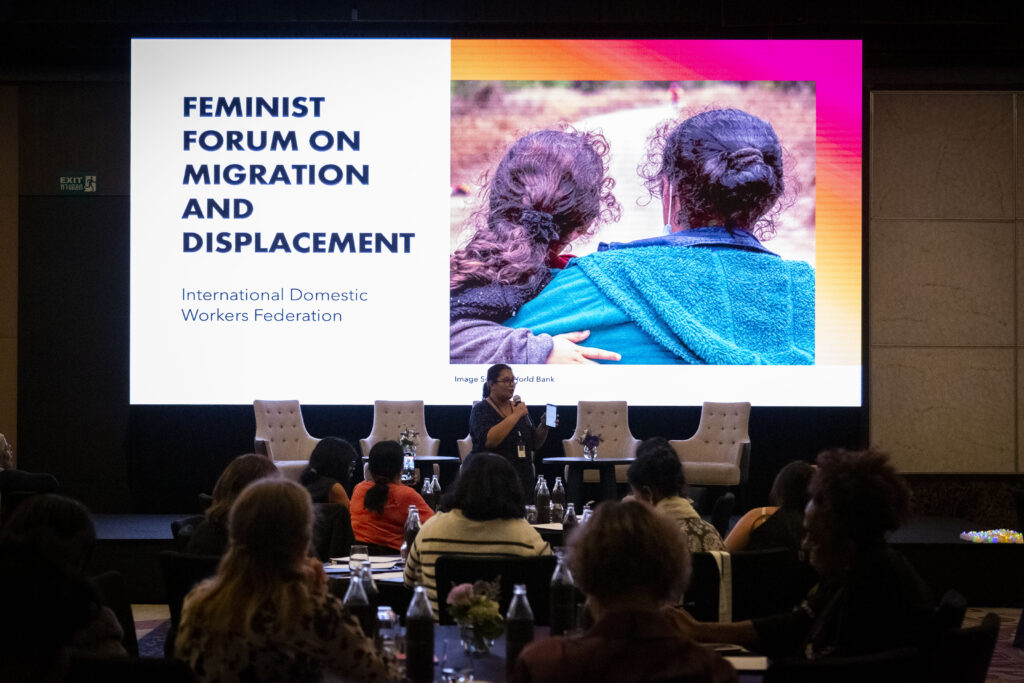
In the precarious pursuit of safeguarding minimal gains, governments and even progressive social movements and civil society representatives often inadvertently forgo the comprehensive demands of migration justice. They opt for limiting and often patronising discourse of “migration management”, where people’s mobility across borders is regulated through restrictions and controls. This “strategic” compromise ultimately reiterates populist discourse, undermines human rights, and translates into a profound and far-reaching loss of the very principles we strive to uphold, eroding the fabric of a truly just and equitable society for all.
Migrants and refugees are prevented from rootedness in the national community or political world and without such belonging, their humanity as meaningful beings is restricted and nullified. This selective prioritisation of issues outside of migration, seemingly pragmatic, sacrifices the fundamental rights and dignity of all people, undermining the very essence of sisterhood, solidarity, and, ultimately, humanity.
This selective prioritisation of issues outside of migration, seemingly pragmatic, sacrifices the fundamental rights and dignity of all people, undermining the very essence of sisterhood, solidarity, and, ultimately, humanity.
The struggle for migrant women’s rights is not a niche issue; it is intrinsically linked to every aspect of the gender equity and equality agenda outlined in the BPfA. From ensuring sexual and reproductive rights for migrant women to guaranteeing their access to education and protecting the rights of migrant girls, the challenges are interwoven.
Climate change-induced displacement disproportionately affects women, and the digital economy presents both opportunities and risks for migrant women seeking work and connection. The devastating impacts of war and conflict are inextricably linked to the displacement and vulnerabilities faced by women on the move.
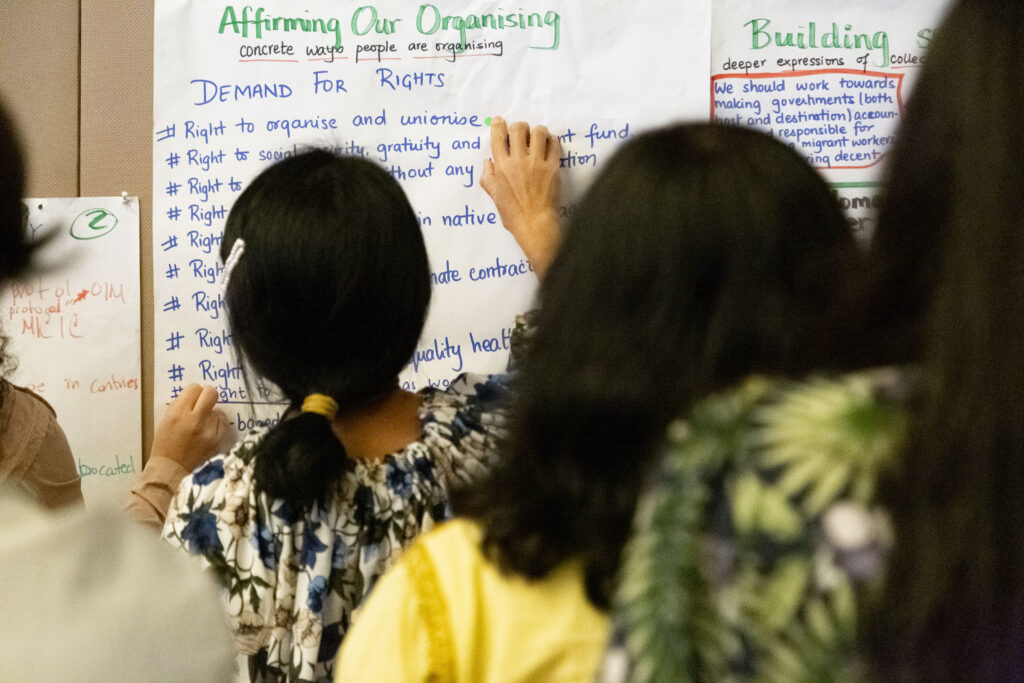
Totalitarianism understands and manipulates the imperative intersection of these areas– for any populism would at once utilize racism, sexism, xenophobia, transphobia, ableism, etc., to achieve its rise to power. It is no coincidence. Systems of oppression work in their intertwinement.
Past reviews of the BPfA have shown a fluctuating understanding of this complexity. While some iterations acknowledged the impact of global economic forces and the need for international cooperation to protect migrant women’s rights, others reverted to a narrower “protectionist” approach. This framing, while seemingly well-intentioned, risks stripping migrant women of their agency and reducing them to victims in need of rescue rather than rights-holders demanding justice.
Rectifying the Past, Reclaiming the Future
The Beijing +30 review offered a critical opportunity to rectify this. Yet, migration was not identified as a standalone thematic priority in the twelve areas of concern in the BPfA blueprint–relegated instead to a discretional inclusion or exclusion in a race to safeguard minimalistic rights.
Migrant women leaders and women in migration must be unequivocally centred. Migration must be highlighted as a fundamental and cross-cutting reality impacting all 12 areas of critical concern within the BPfA to truly honour the inalienability of rights.
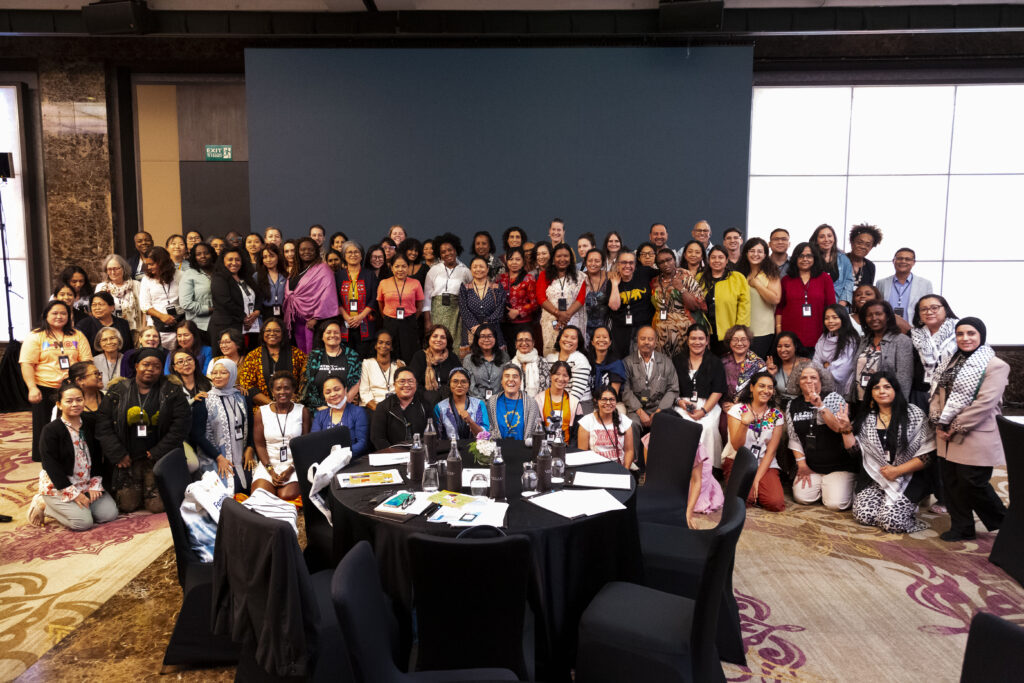
Migration justice for women demands a comprehensive, human-rights-based and gender-responsive approach that spans the entire migration journey – from origin to transit, destination, and return if the return is a desirable choice and venue for achieving permanent status in the country of destination. This includes establishing safe and regular pathways for migration, ensuring family unity, facilitating regularization of status, and offering pathways to permanent residency. It means ending the criminalization and stigmatization of migrants, dismantling xenophobia, and eradicating gender-based violence within the migration system and beyond.
Such an approach requires guaranteeing decent work and labour rights for all migrants, recognizing the vital role of care work in the context of quality public services, ending exploitative labour practices, and ensuring freedom of association. Migrant women must have a seat at every table in decision-making processes and political life. Access to essential services, social protection, and justice must be guaranteed without the fear of retaliation or deportation. The international community, including the UN Commission on the Status of Women, has a crucial role to play. Ensuring the accessibility of BPfA conferences and CSW sessions to grassroots organizations and migrant women themselves is paramount.
Migration justice for women demands a comprehensive, human-rights-based and gender-responsive approach that spans the entire migration journey – from origin to transit, destination, and return if the return is a desirable choice and venue for achieving permanent status in the country of destination.
Ultimately, recognizing that migrant rights are women’s rights and human rights is not just a matter of principle but a necessity for building a more just and equitable world. The issues are multifaceted, but the solution lies in solidarity. By forging a united front of women’s movements and civil society organizations, we can illuminate the profound connections between migration justice and the broader struggles against oppression. An intersectional feminist migration policy is not just a recommendation; it is a crucial tool for countering the rising tide of authoritarianism and ensuring that the promise of equality enshrined in the BPfA finally extends to all women, regardless of their migration status.
Read the full report “Women in Migration Still Seek Inclusion in the Equity & Equality Agenda.”
Women in Migration Network (WIMN) is an international network focused on the rights of women in migration. WIMN takes an intersectional, feminist approach to promote women’s human rights in migration and development policy, and to promote migrant rights in feminist advocacy. Find more about their work here.
Roula Seghaier is an interdisciplinary scholar and a labour organizer with over 15 years of experience in labour, migrant, and refugee organising globally and in the SWANA region in particular. Her work focuses on the informal economy sector and transnationalism from below. She is also an award-winning novelist.

